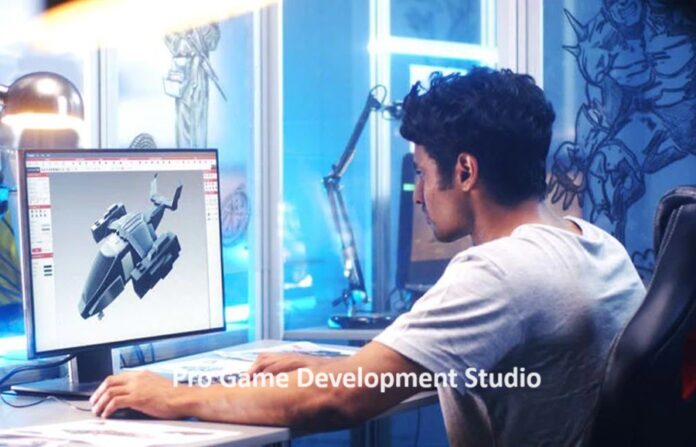Outsourcing game development to a specialized game development studio offers unique advantages, such as access to diverse talent and cutting-edge technology, while often being more cost-effective than expanding in-house teams. This approach, however, necessitates careful planning and management to ensure success.
Understanding the Benefits of Outsourcing
Outsourcing provides access to specialized talents and cutting-edge technology not readily available in-house. It provides scalability for project sizes as well as team management flexibility, which is critical for adjusting to the ever-changing demands of game development. Another key advantage is cost efficiency, as outsourcing may be less expensive than employing and training new employees, especially for short-term or specialized tasks.
Choose the Right Development Studio
Choosing a studio that shares your project’s aims and beliefs. Examining a studio’s portfolio provides insight into their style and quality, while their experience in various game genres might be a deciding factor. It is also necessary to check their reputation through reviews and recommendations to confirm their dependability and expertise.
Establish Effective Communication
Effective communication is the bedrock of every successful outsourcing partnership. Regular updates and shared project management tools are critical for tracking progress and addressing concerns quickly. It is also critical to address any language hurdles and cultural differences that may hinder communication and collaboration.
Manage the Outsourced Development Process
Managing an outsourced project needs focus and organization. Detailed documentation of your project’s needs, as well as a structured plan with specified milestones and deliverables, will help you stay on track. Integrating quality assurance techniques into the development cycle guarantees that the final product fulfills your expectations.
Mitigate Risks in Outsourcing
While outsourcing is advantageous, it is not without hazards. Contracts clearly defining deliverables, timelines, and intellectual property rights are essential. Having backup plans for unanticipated problems and considering security standards for data and IP protection are also important precautions.
Build Long-Term Partnerships
Consider your outsourcing studio as a long-term partner for improved cooperation and outcomes. Constructive feedback encourages continual progress, while aligning on larger aims and values enhances the partnership. Recognizing and rewarding the studio’s outstanding work develops loyalty and dedication.
Navigate Intellectual Property and Legal Considerations
Clear intellectual property rights agreements are essential in outsourcing operations, involving determining who owns the game’s intellectual property and ensuring non-disclosure agreements are in place to safeguard sensitive information. Compliance with applicable rules and regulations, such as data protection and privacy legislation, is also required.
Integrate Outsourced Work with In-House Teams
If working alongside an in-house team, harmonizing the efforts of both groups is vital for project cohesion. Defining clear roles, fostering a collaborative environment, and using unified development tools help integrate the work of in-house and outsourced teams seamlessly.
Evaluate and Enhancing Outsourced Development
Regular assessments against defined performance indicators enable measuring the work of the outsourced studio. Implementing feedback loops promotes continual progress, and performing post-project evaluations provides information for future partnerships.
Future-Proof Your Outsourcing Strategy
An adaptive outsourcing approach is required since the gaming sector is continually developing. Keeping up with industry trends might help you plan for the future. Building long-term connections with dependable studios and keeping adaptable in your plan secures your outsourcing ventures’ long-term success.
Key Considerations for a Successful Partnership
Before concluding, it’s essential to highlight several critical factors that contribute to a successful partnership with an outsourced game development studio:
- Aligning vision and goals. Ensuring your team and the outsourced studio share a common understanding of the game’s vision and objectives is crucial. This alignment guarantees that the development efforts are in sync and that the final product accurately reflects your original concept.
- Respecting cultural differences. In the global marketplace, acknowledging and respecting cultural differences is vital. This understanding fosters a respectful and productive working environment, which is crucial for international collaborations.
- Evolving with feedback. Constructive feedback should be a two-way street. Being open to the studio’s suggestions and providing your feedback can lead to innovative solutions and continuous improvement in the game development process.
- Adhering to legal and ethical standards. Maintaining high legal and ethical standards, especially concerning labor laws and fair work practices, is essential. This commitment protects your company and bolsters your reputation as a responsible and ethical business.
Incorporating these considerations into your partnership strategy can significantly enhance the likelihood of a smooth and productive collaboration, leading to successful game development outcomes.
Conclusion
Outsourcing game development may considerably elevate your project by bringing in specialized experience and unique techniques. It necessitates a systematic approach to selecting the proper partner, successfully managing the process, and maintaining clear communication and legal precautions. When done well, outsourcing becomes more than simply a resource management solution; it becomes a strategic asset that drives your games to new heights of creativity and market success.



































































